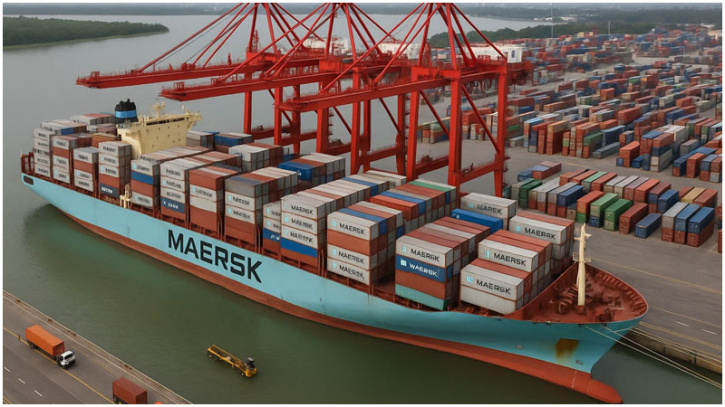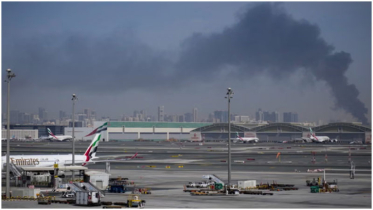Maersk to invest $550mn to develop and operate Laldia Container Terminal in CTG

Danish shipping giant Maersk is set to take over the development and operation of Bangladesh’s Laldia Container Terminal (LCT) in Chattogram under a $550 million deal, marking one of the country’s largest-ever foreign investments in port infrastructure.
Officials in Dhaka announced Wednesday that a public-private partnership (PPP) agreement between APM Terminals B.V.—a subsidiary of A.P. Møller-Maersk—and the Chittagong Port Authority (CPA) will be signed next week.
Under the 30-year concession agreement, which may be extended based on performance, APM Terminals will design, finance, build, and operate the new terminal without any financial contribution from the Bangladesh government, said Chowdhury Ashik Bin Haroon, chairman of the PPP Authority and executive chairman of the Bangladesh Investment Development Authority.
“This entire $550 million will come in as foreign direct investment over the next three years,” Haroon said, calling it the largest European investment ever made in Bangladesh.
The Laldia Container Terminal, located on the banks of the Karnaphuli River at the estuary of the Bay of Bengal, is expected to significantly ease congestion at the Chattogram seaport and allow larger vessels to dock directly for international trade.
Ownership of the port will remain with the CPA, while APM Terminals and its local joint-venture partner will handle construction and operations. The company will also pay Tk 250 crore to the CPA as signing money under the agreement.
“We are providing them with the land to build the terminal and jetty,” Haroon said. “After 30 years, depending on their performance, the concession may be renewed, or the entire facility will be handed back to the port authority.”
Once completed—expected by 2030—the terminal will add more than 800,000 twenty-foot equivalent units (TEUs) in annual capacity, a 44 percent increase over Chattogram’s current throughput. The new facility will also be Bangladesh’s first port capable of 24-hour operations, including night navigation for large vessels.
A senior CPA official said the project would transform Bangladesh’s maritime logistics, improve trade efficiency, and enhance environmental sustainability. “This partnership brings world-class port management to Bangladesh and will make our trade gateway more competitive globally,” the official said.
Developed under a revenue-sharing concession model, the project will generate income for the CPA in U.S. dollars per TEU handled, ensuring a steady flow of foreign currency into the country. Additional revenues are expected from taxes, port dues, and marine services.
APM Terminals operates more than 60 terminals in 33 countries, including facilities in several of the World Bank’s top-performing ports. The company will introduce advanced digital management systems, automated cargo-handling equipment, and enhanced security protocols at the Laldia terminal.
The project is expected to create 500–700 direct jobs and thousands of indirect employment opportunities in logistics, trucking, and warehousing. It will also stimulate investment in inland container depots, cold-storage chains, and industrial zones along the Dhaka–Chattogram corridor.
In addition, APM Terminals plans to train Bangladeshi engineers, technicians, and managers through in-house programs, building local expertise in modern port operations and logistics technology.
Economists say the Laldia Container Terminal could become a cornerstone of Bangladesh’s post-LDC economic transformation, reducing logistics costs, improving export reliability, and strengthening competitiveness in global markets—particularly for the ready-made garment, agro-processing, and light engineering industries.
.png)




